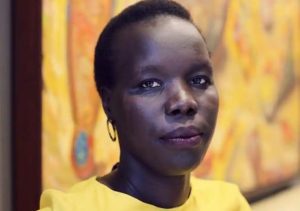Multicultural review has a broad scope
Terminology, racism and discrimination and systemic barriers are among the issues being examined by a new review into Australia’s multicultural framework.
Set up by Immigration Minister Andrew Giles, the review chaired by former SBS chair Dr Hass Dellal, has been tasked with building a stronger multicultural Australia.
 Speaking at the recent Refugee Communities Association of Australia (RCAA) conference in Melbourne, review panel member Nyadol Nyuon gave some insights into the panel’s work to date.
Speaking at the recent Refugee Communities Association of Australia (RCAA) conference in Melbourne, review panel member Nyadol Nyuon gave some insights into the panel’s work to date.
She said one of the themes the panel is looking at is the terminology used in talking about multiculturalism.
“The term CALD (culturally and linguistically diverse) is one of the most used but some people are frustrated with it and say everyone is CALD,” Ms Nyuon said.
“And is the term multicultural outdated?” she said
“There is also the narrative that Australia is the most successful multicultural society in the world. Is that factual or a political desire?” Ms Nyuon said.
She said the panel was also looking at competing narratives in Australia’s multicultural ecosphere.
“There’s the economic narrative that migration improves Australia’s economic prosperity. But then can that survive an economic downturn or a housing crisis?” Ms Nyuon said.
“Then there is the food and festivals narrative. But is that vague and superficial?
“And there’s the humanitarian narrative about inclusion and equality. But is that also vague?”
Ms Nyuon, who is also Executive Director of the Sir Zelman Cowan Centre, said racism and discrimination had been an issue raised frequently in the panel’s consultations around the country.
“Racism and discrimination came up a lot. Especially a lack of access to employment and the idea this is a waste of talent,” she said.
“Also communities say they are consulted by governments but are not hearing back. There is not sufficient access back to communities.
“Communities are saying they are consulted by researchers or officials who then report government but not back to community.
“They are demanding more than consultation. They are asking for a role in decision making.”
Ms Nyuon said the panel had found lots of evidence of successful multiculturalism at a grass roots level.
“We were shocked by how much the success of multiculturalism in Australia is predominantly at the grass roots level with people reaching out to the neighbours,” she said.
“We came across a driving school in Townsville helping migrant women get licences and a Townsville business employing six people from the Central African Republic.
“There are so many stories across the country of people reaching out without government support”.
In summing up, Ms Nyuon said multiculturalism was a big word that said something really simple.
“What the word really asks is ‘how do we live with each other without fear’? And people every day are finding ways to do that.
“But in reality multiculturalism is who we are and who we always have been – and it’s the only way to a prosperous future,” she said.
Ms Nyuon said the core challenge in bolstering multiculturalism in Australia was overcoming systemic barriers.
“Factually Australia has always been diverse but institutionally and systemically we are a monoculture,” she said.
“The conversation about multiculturalism has always been about knocking to get in.”
She said the review was an opportunity to engage with the existing systems and make them more inclusive.
“Institutionally, Australia hasn’t caught up to the reality of the diversity of its people on the ground,” Ms Nyuon said.












